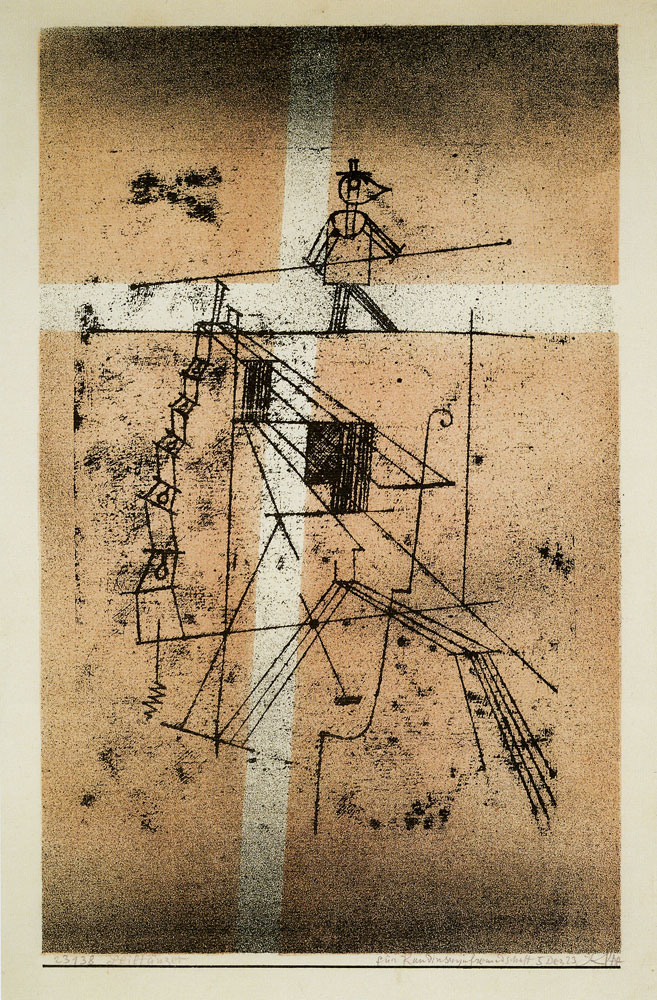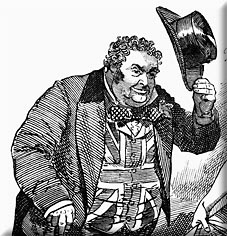Althouse |
- Harvest at Meadhouse.
- "Need to work off some of those extra Thanksgiving calories? Look no further than..."
- So the lady getting on the plane with you seems to be carrying a duffel bag, "But it turns out it wasn't a duffel bag."
- The tightrope act on top of the head, the potted plant in the pelvis, the reclining body, and the possible chair.
- "[F]or a 'pro-life' argument to make sense it has to make sense..."
- "The very idea of cooking up opinions in conclave begets suspicions," said President Thomas Jefferson, criticizing the Supreme Court.
- "We motivated each other to not go to sleep, keep yelling, keep moving our bodies, trying to break out."
- "I always tried to be as concise as possible, all to try and reach everyone..."
- "The smell of opium is the least stupid smell in the world."
- "A Hollywood actor sitting with a paper bag over his head who did nothing as he claims a woman 'raped' him has not been raped."
- It's been 80 years since you could look at the Capitol Christmas tree from 80 feet up in the dome.
| Posted: 29 Nov 2014 07:07 AM PST |
| "Need to work off some of those extra Thanksgiving calories? Look no further than..." Posted: 29 Nov 2014 05:47 AM PST "... this Perfect Disco Workout featuring John Travolta and Jamie Lee Curtis." From the comments: "This is what I imagine it would be like walking in on your parents having sex. Disturbing for all the wrong reasons." |
| Posted: 29 Nov 2014 03:40 AM PST "We could smell it and it was a pig on a leash. She tethered it to the arm rest next to me and started to deal with her stuff, but the pig was walking back and forth. I was terrified, because I was thinking I'm gonna be on the plane with the pig." Said the professor, who wasn't pleased that this lady sat down next to him. This doesn't surprise me at all, because I've read "Pets Allowed/Why are so many animals now in places where they shouldn't be?" It's got a whole section where the author — Patricia Marx — tested the phenomenon of emotional-support animals by taking a pig on a plane: We settled into seats 16A and 16B... Daphne arranged herself on my lap... [A] flight attendant passed Row 16. "Aren't you adorable!" she said....Why didn't the pig next to the professor get the same friendly treatment? It too was presented as an emotional-support animal. One difference is that Marx's pig was only 26 pounds, and the one next to the professor is said to have been 50 to 70 pounds. The latter pig was also described as smelly and "disruptive." I'll also guess that the lady sitting next to the professor was not as smooth a talker as Marx, who was creating material for what turned out to be a hilarious and disturbing New Yorker article. |
| Posted: 29 Nov 2014 06:50 AM PST Lesson 6 in the series "How to draw/paint like Paul Klee" — explained here — based on notes I took at an exhibition in London in 2002. What follows, next to each of the 4 bullet points, is text from one page of the book, followed by the image I'd meant to remember in the abstract and to apply, in the concrete reality of a drawing/painting that might resemble the original in some way or not at all. • draw a tightrope & trapeze act up on top of a woman's head ("Tightrope Walker")  • Draw a vicious plant inside the tormented figure of a woman reaching up at a sprig of 3 cherries ("Pathos of Fertility") Plant is a potted plant — pot = pelvis Click for more » |
| "[F]or a 'pro-life' argument to make sense it has to make sense..." Posted: 29 Nov 2014 02:53 AM PST "...that it follows from a spiritual instinct, or from religious dogma, however deeply held, is not something that rational people have to pretend to respect. It is easy to cite the source of moral ideas in religious vision. Don't you know that Dr. King was a Christian minister? Didn't the ideas of the Abolitionists rise from the Northern churches? It's perfectly true that many good and noble and necessary ideas have come from churches and chapels—as many others have come from temples, universities, Masonic lodges, and presumably one or two from a Satanic cult. But their relevance and plausibility have nothing at all to do with their source; they have to do with the moral and practical sense they make to those who don't have any special respect for their origins. Dr. King was a Christian minister whose ideas about equality and social justice were crucially affected by his faith; those ideas were just as crucially affected by Gandhi and, for that matter, as J. Edgar Hoover would have pointed out, by the Communists in King's entourage. His 'Dream' speech, though deeply rooted in his faith, appealed not to the authority of religion but to the common language, irresistible to all, or almost all, of justice and moral order and practical benefit. Lincoln may have entered politics with a passionate hatred of slavery, but once he was a politician his arguments were distilled from passion into reason and law, and sometimes even into legalism." Writes Adam Gopnik — in "Arguing Abortion" — explicating one of the two major originalities" in Katha Pollit's book "Pro: Reclaiming Abortion Rights." |
| Posted: 29 Nov 2014 02:44 AM PST Quoted in a New Yorker article (by Jill Lepore) about the theft of 1000+ pages of the Felix Frankfurter papers from the Library of Congress. Context: The secrecy surrounding the U.S. Supreme Court derives from a policy set by the fourth Chief Justice, John Marshall, who wanted the Court to issue single, unanimous decisions and to conceal all evidence of disagreement. His critics considered this policy to be incompatible with a government accountable to the people. "The very idea of cooking up opinions in conclave begets suspicions," Thomas Jefferson complained. This criticism has never entirely quieted, but every time things get noisy the Court simply brazens it out. To historians and journalists who are keen to have the Court's papers saved and unsealed, advocates of judicial secrecy insist that the ordinary claims of history and of public interest do not apply to the papers of U.S. Supreme Court Justices; the only claim on the Justices is justice itself.Jefferson is suspicious of the very device that makes the Court look politically neutral and bound by the strictures of legal analysis. By the way, I like Lepore's use of the verb "to brazen it out." "Brazen" means "Made of brass" — literally or figuratively — including "Hardened in effrontery; shameless." The OED has, among its quotes for the adjective "brazen," the Jonathan Swift poem "An Epistle to Mr. Gay" (1731) I knew a brazen minister of state,The verb "to brazen out" means "to face impudently or as with a face of brass." We see this usage in John Arbuthnot's 1712 work: "Lewis Baboon turned honest, and John Bull politician. Being the fourth part of Law is a bottomless-pit": "When I us'd to reprimand him for his Tricks, he would talk saucily, lye, and brazen it out, as if he had done nothing amiss. Will nothing cure thee of thy Pranks Nic. (quoth I?) I shall be forced, some time or another, to chastise thee... After I have beggar'd myself with his troublesome Law-Suit..."This is a book about a lawsuit, presented as a metaphor for war. "Lewis Baboon" = the king of France, Louis Bourbon. John Bull = England:  Looks a little like Scalia, no?  |
| Posted: 28 Nov 2014 06:37 PM PST "Cause I knew if we would've fallen asleep…we probably wouldn't have woke up because we would be so cold, frozen probably." Said the 11-year-old boy who was buried for hours — along with his 9-year-old cousin — under 5 feet of snow dumped on them by a snow plow. |
| "I always tried to be as concise as possible, all to try and reach everyone..." Posted: 28 Nov 2014 06:32 PM PST "... but especially the simple people, those who needed to be reached more than anyone else." Said Chespirito (Little Shakespeare). |
| "The smell of opium is the least stupid smell in the world." Posted: 28 Nov 2014 02:40 PM PST Something Picasso said to Jean Cocteau, according to Cocteau's "Opium: The Diary of an Addict." Why did I find that? I was looking for something else. I'd been saying that the "Only reason to analyze art is to figure out how to copy it," and that connected to a well-known saying: "Good artists copy; great artists steal." But who said that? Steve Jobs? Pablo Picasso? T. S. Eliot? W. H. Davenport Adams? Lionel Trilling? Igor Stravinsky? William Faulkner? Apocryphal?That made me remember something I'd read more than 30 years ago: Picasso was staring at a Cezanne painting, and someone asked him what he was doing and he said — I'm only paraphrasing — I'm looking for things to steal. |
| Posted: 28 Nov 2014 02:23 PM PST "People are actually defending Shia LaBeouf. The world's gone mad. He's invented a supposed 'rape' for cheap PR — utterly shameful." Tweets from Piers Morgan about LaBeouf's "#IAMSORRY" performance. I don't quite have the patience to read this condensed 2-week interview in Dazed and Confused, but I think it has something to do with his ripping off of a genuine artist, Daniel Clowes. |
| It's been 80 years since you could look at the Capitol Christmas tree from 80 feet up in the dome. Posted: 29 Nov 2014 02:56 AM PST There's a new plexiglassed-in place what is called the "trumpeter's ring" 6 floors up in the Wisconsin Capitol. The new viewing station has been open since June. When the Christmas tree goes up on Monday, you'll be able to view its top at eye level. |
| You are subscribed to email updates from Althouse To stop receiving these emails, you may unsubscribe now. | Email delivery powered by Google |
| Google Inc., 1600 Amphitheatre Parkway, Mountain View, CA 94043, United States | |
Popular Posts
-
IT Online Jobs AP Mahesh Cooperative Bank Clerks Recruitment Notification 2013 | www.apmaheshbank.com ...
-
IT Online Jobs EPFO Requires 20 Executive Engineers Civil / Electrical | www.epfindia.com CAFRAL...
-
IT Online Jobs FCI requires Management Trainee | www.fcijobsportal.com | FCI Recruitment 2013 Jharkhand ...
-
IT Online Jobs www.jnport.gov.in | Jawaharlal Nehru Port Trust Recruitment 2013 Jawaharlal Nehr...
-
IT Online Jobs Krishak Bharati Cooperative Limited Recruitment 2013 | www.kribhco.net MMTC LIMITED requ...
-
IT Online Jobs Karnatak University Recruitment Notification June 2013 | www.kud.ac.in NIOS Regional Cen...
-
IT Online Jobs www.tnvelaivaaippu.gov.in | Employment Online Registration Tamilnadu Government plus T...
-
IT Online Jobs INAUTIX Technologies Careers Chennai | www.inautix.co.in BSF Meghalaya Recruitmen...


